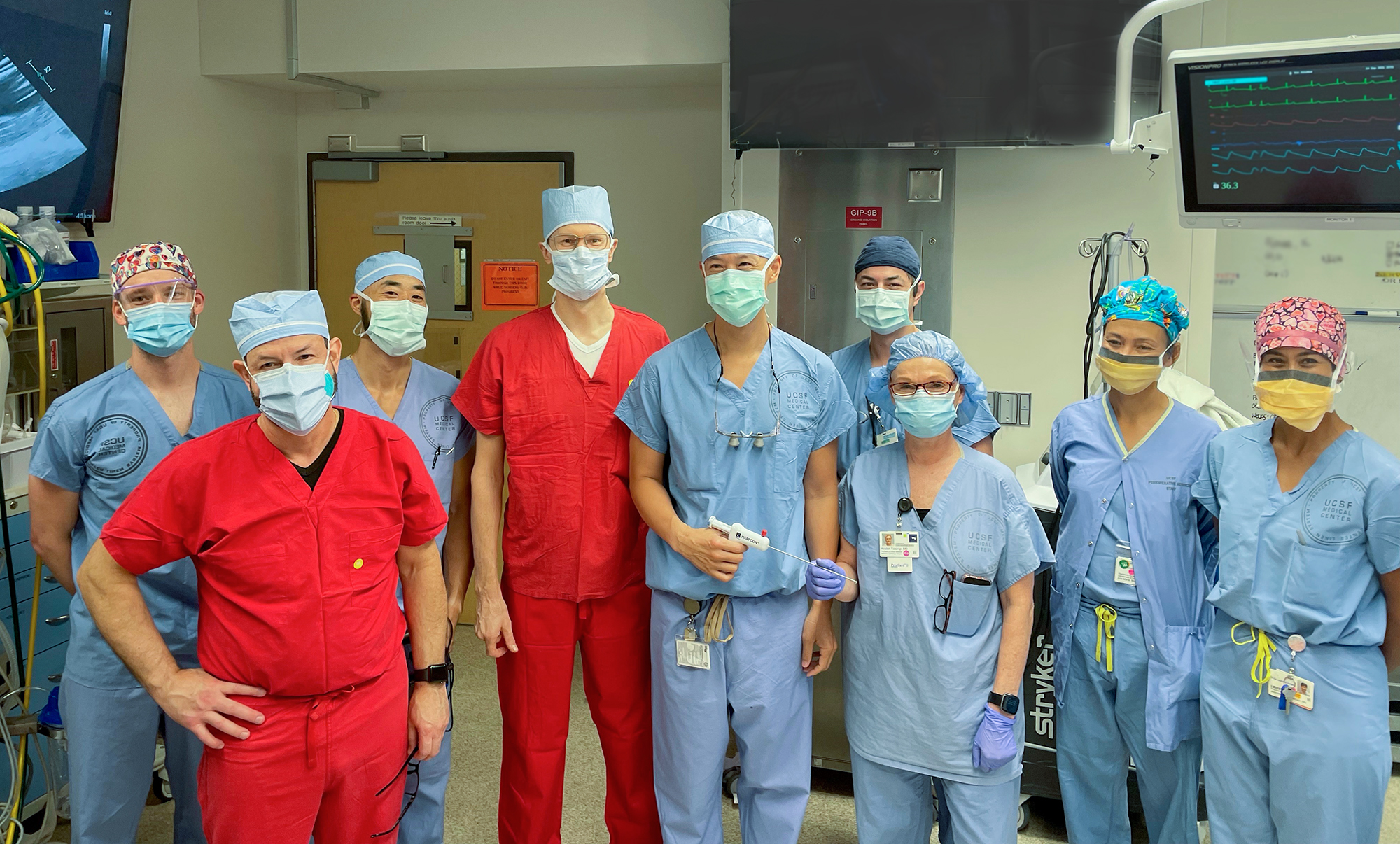

The first beating heart mitral valve repair on the West Coast was performed by Tom C. Nguyen, MD, chief of UC San Francisco’s Division of Adult Cardiothoracic Surgery, and his surgical team in September 2021. The HARPOON™ Beating Heart Mitral Valve Repair System was used for the procedure as part of the RESTORE clinical trial.
Case study: patient with severe mitral regurgitation
In July 2021, a 60-year-old man suffering from severe mitral regurgitation (MR) with mitral valve prolapse and a ruptured chord was referred to the UCSF Heart and Vascular Center. The patient had a history of new onset atrial fibrillation (AF) after direct current cardioversion (DCCV), and he was on apixaban. The patient was previously extremely active and enjoyed outdoor activities such as hiking, golfing and mountain biking. His MR significantly hindered his ability to participate in these activities.
The patient was identified as a potential candidate for the RESTORE clinical trial, a multicenter study designed to evaluate the safety and effectiveness of the HARPOON system in patients with severe degenerative MR. He agreed to participate in the trial. After the required imaging and labs were completed, a case review committee convened and the patient was approved for surgery.

Tom C. Nguyen, MD, FACS, FACC, and his surgical team
Successful beating heart mitral valve repair
In September 2021, Nguyen and his surgical team successfully performed the first beating heart mitral valve repair on the West Coast. For this minimally invasive procedure, Nguyen inserted the HARPOON system through a small incision to repair the patient’s mitral valve chords. Because the patient had an abnormally large posterior leaflet (P2) segment of the mitral valve, Nguyen implanted seven expanded polytetrafluoroethylene (ePTFE) chords.
Kirsten Tolstrup, MD, performed echocardiography during the procedure to guide the implantation. This allowed Nguyen to accurately place the chords, adjust them during surgery and confirm the results, all while the patient’s heart was beating. The surgery lasted approximately two hours and was uncomplicated.
Patient’s MR stopped and he resumed normal activities
After the procedure, the patient no longer had MR. He was started on metoprolol and amiodarone for AF management and remained in the hospital for seven days. When discharged, the patient was saturating well on room air and ambulating without desaturation. He continued on apixaban.
The patient has resumed his outdoor activities and reports he is much improved from his pre-operative condition. He is no longer experiencing shortness of breath or light-headedness while exercising and is continuing to improve daily.
“This excellent outcome was the result of a group effort among the UCSF cardiothoracic surgery, cardiology and anesthesiology teams,” Nguyen said. “We appreciate everyone’s participation in the RESTORE trial, especially the patient.”
Ongoing clinical trial
Minimally invasive mitral valve chordal repair technologies are not available to U.S. patients outside of the investigational setting at this time. The RESTORE trial is accepting new patients with severe degenerative MR. Drs. Nguyen and Vaikom Mahadevan are leading the trial at UCSF.
To learn more:
Phone: (415) 353-8195 | Fax: (415) 353-1312


